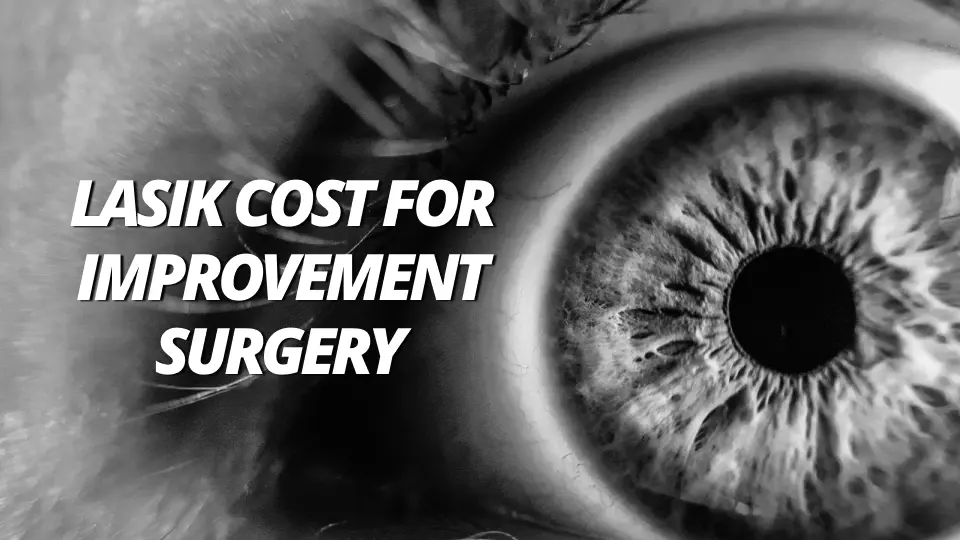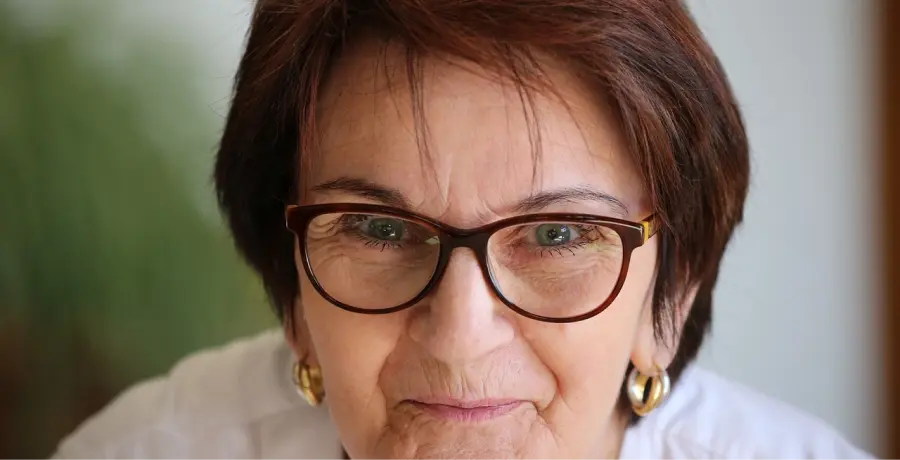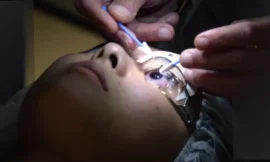Table of Contents
- How often does someone need LASIK twice?
- Can you get LASIK twice? Reasons
- Most patients need LASIK once in their lives.
- Is it safe to get LASIK a second time?
- What is the cost of a second LASIK?
- Conclusion:
- Frequently Asked Questions:
It annoys everybody when someone has refractive surgery, and his eyesight doesn’t improve. The question will arise in the mind: can you get LASIK twice? Patients who have under- or overcorrected should undergo LASIK twice since this procedure may be an improvement. Even after having vision correction surgery, older people over 40 may still experience vision problems because they develop presbyopia or cataracts. Maybe you’re wondering if getting LASIK again is safe.
Surely, you can have LASIK twice in your life. However, your eye surgeon can decide after reviewing your symptoms and optical evaluations. This could be an augmentation operation that the eye surgeon can perform to achieve the desired results. Because of the modern technology used in LASIK surgery, it is sometimes necessary to have the procedure repeated.
How often does someone need LASIK twice?
LASIK is a laser-assisted vision correction procedure with a higher success rate when a patient has a healthy cornea and lifestyle. Eye patients over 40 require augmentation surgery, which can be performed within a year of having LASIK.
In the United States, LASIK retreatment is frequent, accounting for approximately 10.5%. The answer to the inquiry “Can you get LASIK twice?” is yes if you are old and have specific symptoms.
Only 21 out of 200 patients may require vision improvement surgery to see clearly. Although the success rate is higher in younger patients, they can keep their eyesight ability for the remainder of their life. With vision correction surgery, individuals can see a light at the end of the tunnel.
Can you get LASIK twice? Reasons
In 2020, 718 thousand refractive procedures were completed in the United States. All individuals who have surgery to rectify their vision believe everything will be OK. However, some factors make the situation worse, as listed below:
- Under correction LASIK.
- Overcorrection during the surgery.
- Higher refractive error of Astigmatism.
- Unhealthy living.
- Did not follow the ophthalmologist’s directions.
Most patients need LASIK once in their lives.
As was earlier discussed, LASIK is more successful in younger people who do not have glaucoma than in older people. Topography-guided LASIK, a tailored treatment for improving eyesight, can last a lifetime most of the time unless you don’t have complicated conditions.
If you wear reading glasses or contact lenses and have a healthy cornea and no severe autoimmune disease, you are more likely to need LASIK only once in your lifetime. It is conducted using excimer lasers, which create a flap to correct the refractive defect. After LASIK surgery, you can see clearly within 24 hours.
Is it safe to get LASIK a second time?
Keep in mind that only some are eligible for LASIK a second time. It can be decided after having a consultation with the eye surgeon. Some individuals need special care and medications after having LASIK surgery that can prevent further complications. The complications can be eye dryness, itchiness, and cloudy or hazy vision at night.
You can qualify for LASIK a second time at a later age (above 40) after 10-20 years of getting LASIK the first time. It is because of the weaker ciliary muscles to focus on objects (a condition called presbyopia) and cataracts that may develop. A patient will feel pink for the rest of his life after undergoing a second LASIK surgery.

What is the cost of a second LASIK?
The cost for a second LASIK depends on factors such as age, health condition, and medications that may be required during the procedure. The cost may vary from region to region, too. But if you are getting LASIK for the second time from the same surgeon, there is a higher chance you will be charged a low price.
In some cases, minor improvements are required that can proceed with no extra charges. However, the cost ranges between $1500-2500 in the USA, including the initial consultation fee, surgery for one eye, and the necessary medications such as optical drops. Some LASIK centres offer discounts or packages that may suit your needs, so visit the eye surgeon clinics and get your affordable package.
Conclusion:
In conclusion, we have described why we need to undergo LASIK twice. Eyesight can be improved with a second LASIK procedure at an older age. Only some are ideal candidates for a second LASIK surgery. It is safe if you use the services of an experienced and skilled eye surgeon.
Maintaining eye health and avoiding issues such as dry eyes, itching, and blurred vision is critical following LASIK surgery. It is typical to have blurry vision immediately after LASIK surgery, which will resolve as the cornea heals. After vision correction surgery, you will have 20/20 vision within 3 months.
Frequently Asked Questions:
- Is it safe to get LASIK twice?
Indeed, it is safe to have LASIK twice. The eye surgeon will recommend that LASIK be performed twice after reviewing your optical dominance data for LASIK a second time.
- Can you get LASIK a second time 20 years later?
A second LASIK surgery can be performed 20 years after the first. This is because the chances of developing presbyopia or cataracts increase over the age of 40.
- How many times can you go to LASIK?
The decision to get LASIK more than once is based on the patient’s corneal or overall health. The ophthalmologist will advise you to go for LASIK a second time or not after a thorough examination of your medical history.
- Can LASIK be redone after 10 years?
Yes, LASIK can be redone after 10 years if you are eligible. Consult your surgeon to determine whether you need retreatment for vision correction.
- Why is my eyesight getting worse 5 years after LASIK?
Developing visual problems 5 years after laser eye surgery would be because of ciliary muscle weakness. It is brought on by ageing, leading an unhealthy lifestyle, or perhaps autoimmune diseases.
References:
- Allamby, D. (2023, December 21). 24 Laser Eye Surgery Statistics | Focus Clinics.
- Hersh, P. S., Fry, K. L., & Bishop, D. S. (2003). Incidence and associations of retreatment after LASIK. Ophthalmology, 110(4), 748–754.
- Number of LASIK surgeries in the United States 2020 | Statista. (2019, September 3). Statista.




